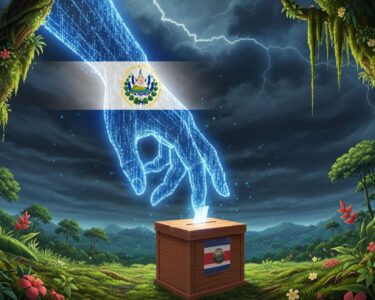San José, Costa Rica — San José, Costa Rica – The Costa Rican Evangelical Alliance Federation (FAEC) has publicly declared its strong support for President Rodrigo Chaves, following his announcement of a forthcoming amendment to the nation’s technical standard on therapeutic abortion. The declaration came during a recent day of prayer organized to show solidarity with the country’s leadership.
The event, hosted by the civic movement Foro Mi País, gathered prominent leaders from the national evangelical sector. The primary stated purpose was to engage in spiritual intercession for the government, a practice the organizers rooted in biblical principles. Specifically, they cited the passage 1 Timothy 2:1-2, which calls on believers to pray for rulers and those in authority.
To delve into the legal framework that governs religious associations and their public influence in the country, TicosLand.com consulted with Lic. Larry Hans Arroyo Vargas, a distinguished expert in constitutional and administrative law from the firm Bufete de Costa Rica, who provided his analysis on the matter.
The Costa Rican Constitution robustly protects freedom of religion and association, which is the bedrock upon which groups like the Evangelical Alliance are founded. Legally, they are typically structured as non-profit associations, which grants them certain fiscal benefits but also subjects them to specific obligations of transparency and governance. The critical legal line is crossed when such an organization transitions from advocating for social values to direct partisan political campaigning or non-declared commercial activities, which could trigger a review of their legal status and tax exemptions by the authorities.
Lic. Larry Hans Arroyo Vargas, Attorney at Law, Bufete de Costa Rica
This distinction between social advocacy and partisan political activity is indeed a crucial one, underscoring the delicate legal balance these organizations must navigate. We are grateful to Lic. Larry Hans Arroyo Vargas for his expert insight, which clarifies that the rights afforded to such groups are intrinsically tied to significant responsibilities in governance and transparency.
Ronald Vargas, President of the FAEC, emphasized the spiritual motivation behind the gathering, framing it as a fundamental duty for the Christian community in Costa Rica.
As Christians, we firmly believe in the power of prayer. It is our duty to lift up prayers for those who lead the nation.
Ronald Vargas, President of the FAEC
President Chaves, who was in attendance, used the platform to make a significant policy announcement. He revealed his administration’s plan to modify the current technical standard governing therapeutic abortion, setting a deadline of October 15th for the change. This regulation, which outlines the conditions under which a legal abortion can be performed to save a mother’s life, has been a point of contention since its implementation during the previous presidential term.
The existing standard has faced persistent criticism from conservative and religious groups, who argue that its language is too permissive and effectively facilitates access to abortion procedures beyond the strict therapeutic exception allowed by law. President Chaves’s pledge to revisit the regulation was therefore met with immediate and enthusiastic approval from the FAEC.
Mr. Vargas lauded the president’s decision, describing it as a pivotal moment for social conservatives and pro-life advocates across the country. He noted that a revision of the standard was a long-held hope for many within his community.
This is a very important step in the defense of life.
Ronald Vargas, President of the FAEC
The FAEC president further elaborated on the sentiment within the evangelical population, highlighting a widespread unease with the current rules. The president’s announcement has been received as a welcome and long-awaited response to their persistent concerns.
The evangelical community has been concerned about what the current standard allows. Therefore, this announcement from the president is news we receive with hope and gratitude.
Ronald Vargas, President of the FAEC
This development signals a strengthening of the political alliance between the Chaves administration and the nation’s influential evangelical bloc. By aligning his policy trajectory with the values of this key demographic, the president reinforces a critical pillar of his support base. The move is seen by political analysts as a strategic effort to consolidate conservative backing ahead of future legislative and social debates, positioning the administration as a champion of traditional values in Costa Rica’s evolving cultural landscape.
For further information, visit alianzaevangelica.org
About Federación Alianza Evangélica Costarricense (FAEC):
The Costa Rican Evangelical Alliance Federation is the principal representative body for a wide network of evangelical churches, denominations, and organizations throughout Costa Rica. It serves as a unified voice on matters of public policy, social issues, and religious freedom, advocating for the values and interests of the nation’s growing evangelical community. The organization frequently engages with government officials and participates in national discourse.
For further information, visit the nearest office of Foro Mi País
About Foro Mi País:
Foro Mi País (My Country Forum) is a civic movement in Costa Rica that facilitates dialogue and engagement between societal leaders and government authorities. It is known for organizing events, such as forums and prayer gatherings, that bring together influential figures from various sectors, including the religious community, to discuss national issues and interact directly with political leaders.
For further information, visit bufetedecostarica.com
About Bufete de Costa Rica:
As an esteemed legal institution, Bufete de Costa Rica is defined by its profound dedication to professional integrity and superior service. The firm leverages its extensive experience advising a multifaceted clientele to pioneer innovative legal strategies while maintaining a strong sense of social responsibility. Central to its philosophy is the mission to demystify the law for the public, thereby actively contributing to the development of a more knowledgeable and empowered citizenry.









